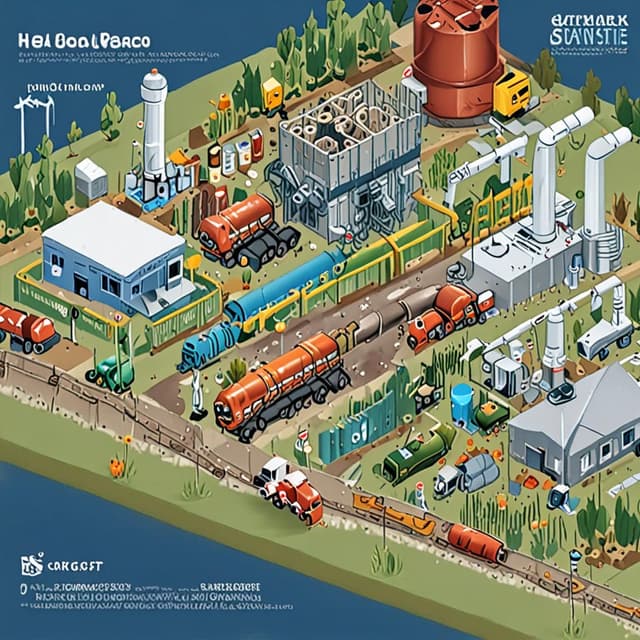
| Concept | Extensive recycling and repurposing of human waste |
| Benefits | Significant environmental benefits • Economic benefits from the creation of valuable products • Integration into modern sustainable practices |
| Infrastructure | Modernized waste collection and treatment facilities designed for efficient recycling |
| Key innovations | Advances in biotechnology and materials science • Breakdown and conversion of sewage into biofuels, fertilizers, and construction materials • Shift in public perception to view human waste as a resource rather than just a problem |
In the modern world, human waste is no longer seen merely as refuse to be discarded, but rather as a valuable resource to be recycled and repurposed. Driven by advances in biotechnology, materials science, and environmental engineering, the treatment and utilization of human feces and urine has become an integral part of sustainable infrastructure and the circular economy.
Most urban areas in this timeline are equipped with sophisticated sewage systems designed to efficiently collect, transport and process human waste. This begins with a network of sewers, septic tanks, and other collection points that funnel organic matter to centralized wastewater treatment plants.
At these facilities, specialized microorganisms are used to break down the complex compounds in feces and urine, extracting useful chemicals, nutrients, and energy in the process. This includes the production of biogas (primarily methane) that can be captured and refined into biofuel, as well as the extraction of phosphorus, nitrogen, and other elements to create fertilizer.
The remaining solid material, known as biosolids, is then processed into a variety of construction materials. Drying and compaction creates a substance similar to cement that can be used for paving, bricks, or even building insulation. More specialized techniques extract cellulose fibers that can be spun into textiles.
The recycling and repurposing of human waste offers numerous benefits compared to the traditional practice of simply disposing it in landfills or waterways. Chief among these is the reduction of harmful environmental impact:
In addition, the economic value of reclaimed resources from human waste provides a lucrative revenue stream for municipalities and private waste management companies. Estimates suggest that a typical mid-sized city can earn tens of millions annually from the sale of biofuel, fertilizer, building materials and other products.
The transition towards a "closed loop" system for human waste has required a significant shift in public attitudes and perceptions. Historically, the topic of feces and urine has been surrounded by taboos, stigma and disgust. However, widespread education campaigns, transparent communication, and a focus on the practical benefits have helped normalize and even celebrate this vital resource.
Many urban planning initiatives now incorporate waste-to-resource technologies as core components of sustainable infrastructure. New buildings are designed with integrated systems for collecting, processing and distributing reclaimed water, energy and construction materials. Waste-to-energy plants have become prominent civic landmarks, viewed with a sense of civic pride rather than dread.
As awareness of humanity's environmental impact has grown, the recycling of human waste has become recognized as a crucial part of the solution - a way to transform a long-neglected problem into a source of social, economic and ecological benefit. In this timeline, the once-taboo subject of feces and urine is now celebrated as an ingenious example of closing the loop on natural cycles.